Recent News
Photos: Lions Club Gas-O-Rama FundraiserSaturday, February 13, 2021
The Hamilton Lions Club, BZS Junior Volunteers and Rubis Terceira North Shore Gas Station are helping to raise money for Vision Bermuda and the Bermuda Zoological Society, with the 52nd annual Gas-O-Rama taking place today [Feb 13] at the gas station in Devonshire.
‘The Hunt’ Was On For Families Over Holiday
Tuesday, January 12, 2021
Over 80 families registered ‘The Hunt’, and those taking part have been able to experience and learn more about their island they thought they knew so well.
Rubis calendars will now be sold
Tuesday, December 08, 2020
After 42 years of being free, the Rubis calendar will now cost $5 each.
Aquarium junior volunteers get chance to complete programme
Thursday, December 03, 2020
Pupils enrolled in a competitive volunteer programme through the Bermuda Zoological Society have been given a second chance to complete it in the wake of Covid-19.
Bermuda Turtle Project Continues Research
Monday, October 15, 2018
The Bermuda Zoological Society in partnership with the Sea Turtle Conservancy completed another research and education programme this year, with the Bermuda Turtle Project committed to the goal of promoting the conservation of marine turtlesthrough research and education.
About
GovernanceAbout Us
Newsletter
Latest News
Gift & Bookstore
Contact
General Inquiries
info@bzs.bm
Latest News
All the latest updates and news from the Bermuda Aquarium, Museum, and Zoo, one of Bermuda's leading visitor attractions!
Simon Jones
Published Jan 26, 2017 at 8:00 am (Updated Jan 26, 2017 at 6:53 am)
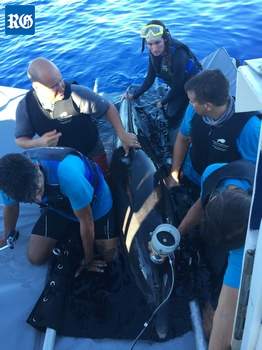
Keeping track: marine researchers have used
satellite-linked tags to study dolphins
A ground-breaking study of Bermuda’s wild bottlenose dolphins has revealed a rare insight into their secretive lives at sea.
At the end of last August four dolphins, which were named Hamilton, Devonshire, Paget and Pembroke, were fitted with satellite-linked time and depth recording tags off the North Shore of the island. The animals were tracked between September and November with data showing one dolphin diving to a record depth of 1,008 metres, while the female, Paget, swam north for more than 800 kilometres to a ridge of seamounts.
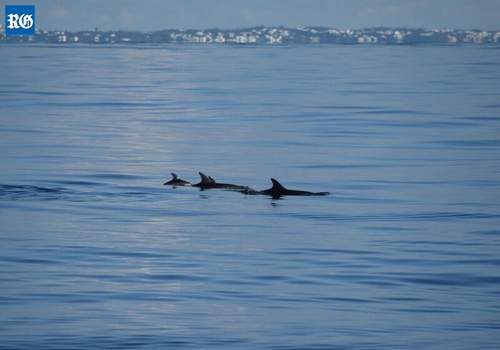
Randall Wells, one of the lead investigators on the project, used the data from the tags to compile a weekly diary and map graphic outlining each dolphin’s movements.
“Both overall maximum dive depth and overall maximum dive duration have exceeded previous documented records for Bermuda dolphins,” Dr Wells said.
“Since tracking began, each dolphin has made dives below 50 metres lasting more than 12 minutes and one dove to 1,008m — a new record for bottlenose dolphins.”
The research was carried out by an international team of marine mammal scientists, Dolphin Quest veterinarians and animal care professionals under a special permit from the Department of the Environment and Natural Resources.
The Bermuda Wild Dolphin Project and the Bermuda Museum, Aquarium and Zoo were also heavily involved in the project, which also studied the wild dolphins’ acoustic behaviours and lung functions.
Dr Wells, of the Chicago Zoological Society’s Sarasota Dolphin Research Programme, added: “Over the first two months of tracking the three males; Devonshire, Hamilton, and Pembroke have remained near Bermuda and nearby banks.
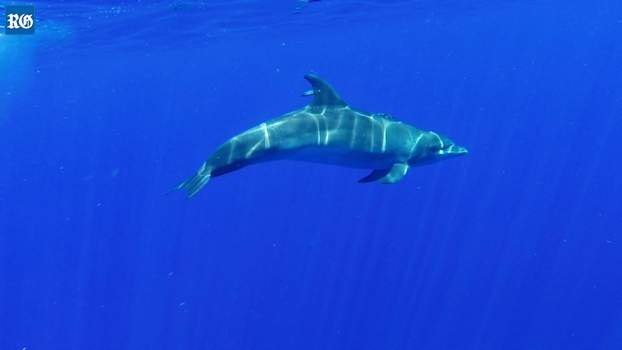
“After several weeks, the female, Paget, went north more than 800km to a ridge of seamounts.
After moving among the seamounts, she moved south, passed east, south, and west of Bermuda, while remaining more than 100km offshore, and as of her final transmissions she was once again approaching the northern seamount ridge. “Defining a population unit for the Bermuda dolphins is challenging, when both localised and long-distance ranging patterns must be considered. More tagging and tracking should help to identify the animals’ ranging patterns.
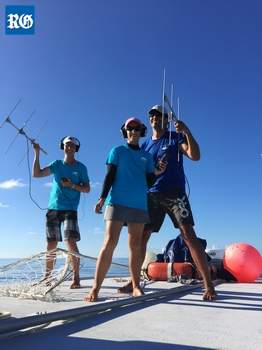
“In addition, we have provided small skin samples to NOAA scientists for analyses to compare the genetics of the Bermuda dolphins to those of dolphins elsewhere in the North Atlantic.”
Bottlenose dolphins have adapted to a wide variety of habitats around the world.
While experts have been studying the coastal bottlenose dolphins in Sarasota, Florida for many decades, the offshore bottlenose dolphins found in the deep waters surrounding Bermuda are much more of a mystery.
“Advancing our collective knowledge of marine mammals to support their conservation has always been part of our mission at Dolphin Quest,” said Christine Mihelcic, Dolphin Quest Bermuda general manager.
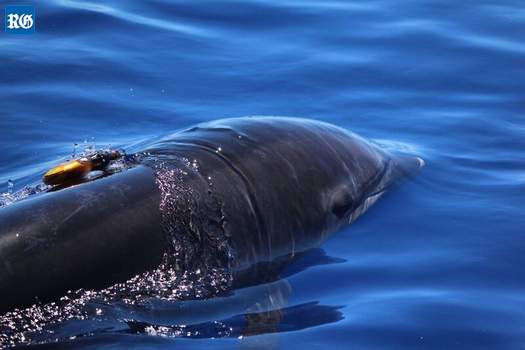
“This project is an international collaboration between scientists, veterinarians and marine mammal experts who all share the same goal to preserve and protect the species.
“We are so excited about the initial discoveries made and look forward to future insights into the lives of these incredible animals.”


